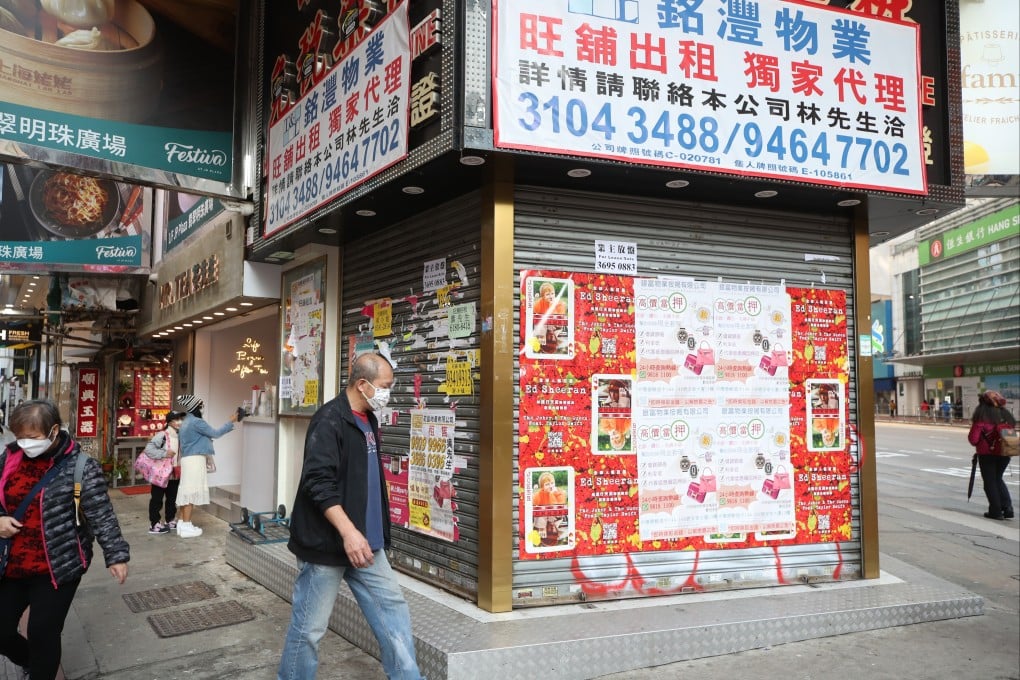New Hong Kong rent relief law to apply to more than 19 sectors hit hard by fifth wave of Covid-19 infections, finance chief says
- Financial Secretary Paul Chan says law will allow small and medium-sized enterprises in these industries to delay rent payments from January for up to six months
- Small businesses call for more relief measures instead, with some landlords concerned about failure to pay mortgage bills to banks

But small businesses said the new law would be pointless as they still had to pay rent, preferring more relief measures instead. Some landlords were also worried they would not be able to pay mortgage bills to banks as a result of the new law.

Chan said the city’s de facto central bank, the Hong Kong Monetary Authority, would issue notices and guidelines to banks about flexible treatment of mortgage repayment, and he was confident that banks would comply with them.
Chan said 17 categories of premises were covered in the government’s latest round of anti-epidemic funding, such as beauty parlours, massage establishments, fitness centres and cinemas.
Separately, Secretary for Financial Services and the Treasury Christopher Hui Ching-yu also said other premises not included in the fund, such as nurseries, private schools and interest class venues, would be covered under the new policy.